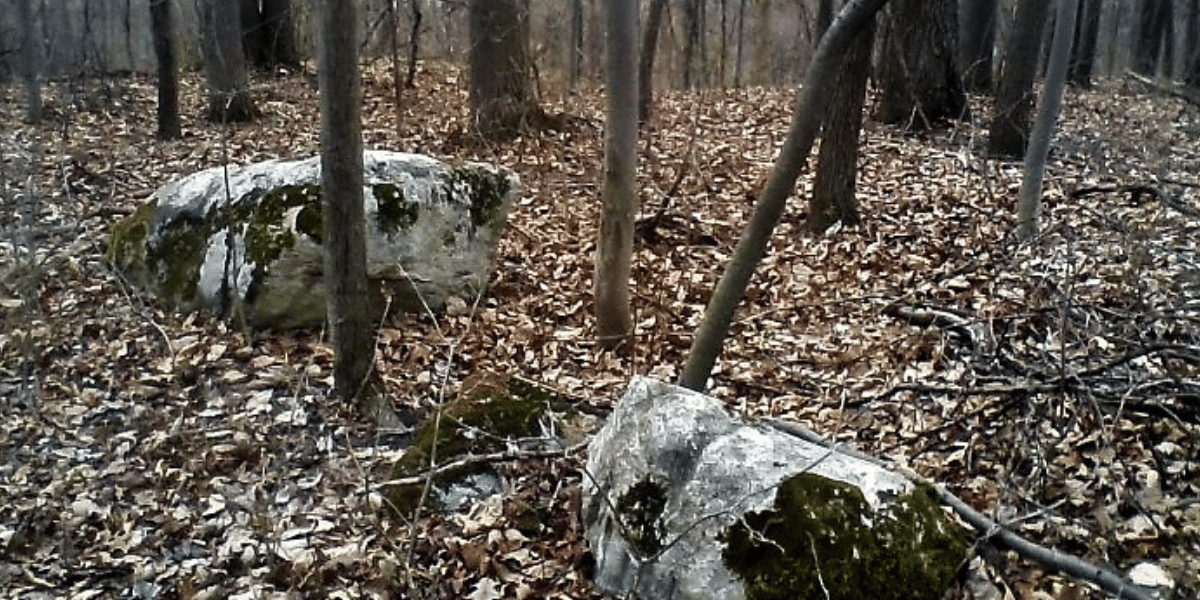Thumb Land Conservancy Announces New Projects
The Thumb Land Conservancy has several projects underway, all made possible with volunteers and community collaboration across several counties in Michigan’s Thumb.
The Thumb Land Conservancy is constructing an informational kiosk at the Bidwell Sanctuary in northern St. Clair County. The kiosk is funded by a grant from the Bioregion Reparation Fund.
The Conservancy is also working on the Duthler Ridge Sanctuary in Lapeer County, which was acquired last year. The Sanctuary is located in Dryden Township. It is named after Surveyor Rick Duthler, who was instrumental in the property acquisition. The Duthler Ridge Sanctuary is described as located on a narrow ridge on the east edge of a huge forested valley, nearly one mile across and two miles long, with a series of lakes and wetlands at the bottom.
The Conservancy is also working to protect 40 acres in Huron County. The land is a mix of swamp and forest and its conservation will protect pollinators that are vital to the ecosystem.
Go to WGRT.com for a link to more information about the Thumb Land Conservancy and how you can help preserve the natural wonders in Michigan’s Thumb.
Reporting for WGRT – Jennie McClelland
Meijer, Council of the Great Lakes Region Team up to Clean Beaches and Waterways
The Meijer company has donated $1 million toward cleaning up the Great Lakes. The money will be used by the Council of the Great Lakes Region to clean up beaches and waterways throughout the Midwest and to educate the public about plastics pollution.
Eighty percent of litter that washes up on beaches is plastic. The Council of the Great Lakes Region uses a solar-powered robot, called a Bebot, to clean beaches. The robots clean 32,000 square feet of beach per hour.
The Council also uses pixie drones, which navigate marinas and other waterways and can collect up to 200 pounds of litter per use while collecting important measurements of water health.
Meijer has committed to using gutter bins to prevent trash, including microplastics, from entering waterways at their retail locations.
Vik Srinivasan, Senior Vice President of Properties and Real Estate at Meijer, said, “We are lucky to live near the beautiful Great Lakes, which not only provide immense economic value to the region, but they also act as a hub for recreation, travel and biodiversity. It’s our responsibility to protect them.”
Reporting for WGRT – Jennie McClelland
Putting Away Bird Feeders Could Slow the Spread of Bird Flu
Filling up the birdfeeders is a spring ritual for many people, but this year is different. Michigan residents are asked to consider putting away bird feeders out of an abundance of caution to stop the spread of Highly Pathogenic Avian Influenza, or “Bird Flu”.
The deadly disease is making its way through both domestic and wild birds throughout the state. Waterfowl, raptors, and scavenger birds are highly susceptible and have been particularly affected by the disease, according to the Michigan Department of Natural Resources.
There is not a widespread recommendation yet, but those who generally get a lot of blue jays, crows, or ravens at their feeders, or who have poultry, raptors, or waterfowl in the area, should exercise caution when feeding birds. The birdfeeders could contribute to disease spread.
For those who choose to keep bird feeders up, the DNR recommends cleaning them with a diluted bleach solution once per week, cleaning up any fallen birdseed, and not feeding wild birds near domestic flocks, like backyard chickens.
The DNR also wants to know about any unusual bird deaths so they can closely monitor the spread of Avian Influenza.
Reporting for WGRT – Jennie McClelland
Michigan Working with National Park Service to Pilot Accessibility Innovations
The State of Michigan and the National Park Service are working together to increase the accessibility of electric vehicles in Michigan’s five national parks as well as find innovative ways to make parks available to everyone, from families with babies to elderly visitors. Michigan will pilot emerging mobility technology as well as innovative accessibility measures.
The collaboration includes a commitment to research and implement environmental sustainability and visitor access projects, identify potential electric vehicle charging infrastructure projects, advance innovative mobility and electrification initiatives, engage the community in pilot projects, and share knowledge leading toward the Lake Michigan Circuit to enable electric vehicle tourism at state and national parks around the Great Lakes.
Michigan’s five National Parks are Rocks National Lakeshore, Isle Royale National Park, Keweenaw National Historical Park, Sleeping Bear Dunes National Lakeshore, and River Raisin National Battlefield Park.
Reporting for WGRT – Jennie McClelland
Special Open Enrollment Period In Effect for Health Insurance Marketplace
Michigan residents can enroll in the Health Insurance Marketplace during a Special Enrollment Period. The enrollment period is in effect from now until November 30th with coverage starting on the first day of the month after enrollment.
Department of Insurance and Financial Director Anita Fox explained, “Many Michiganders now have free or low-cost health insurance thanks to increased enrollment opportunities and the American Rescue Plan, but many thousands more remain uninsured despite being eligible for significant out of pocket savings.”
The Special Enrollment Period is for those who have a household income that falls below 150% of the Federal Poverty Level. The level is around $19,000 for an individual and $40,000 for a family of four. Those who qualify will also be eligible for an Advance Premium Tax Credit that could make the Marketplace plan available at no cost.
Free local enrollment help is available to help you take advantage of this new opportunity at LocalHelp.HealthCare.gov. You can also contact DIFS, Monday through Friday from 8 a.m. to 5 p.m., at 877-999-6442 for information about getting started.
Reporting for WGRT – Jennie McClelland






